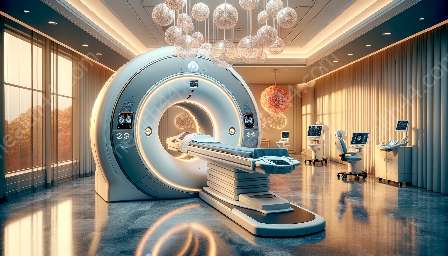Magnetic Resonance Imaging (MRI) machines have revolutionized medical imaging, providing detailed views of the human body without the use of harmful radiation. This advanced technology has significantly impacted the field of medicine, allowing for accurate diagnoses of a wide range of conditions and diseases.
MRI machines are a vital component of medical imaging and have become an integral part of modern healthcare. They play a crucial role in diagnosing and monitoring various medical conditions, offering non-invasive and detailed views of internal body structures.
The Technology Behind MRI Machines
MRI machines utilize powerful magnets and radio waves to create detailed images of the body's internal organs and tissues. This non-invasive imaging technique relies on the principles of nuclear magnetic resonance to produce high-quality images that aid healthcare professionals in diagnosing and monitoring a variety of medical conditions.
The machine's ability to produce multi-dimensional images enables healthcare providers to better understand the nature and extent of a patient's condition, leading to improved treatment planning and patient care.
Applications of MRI Machines
The applications of MRI machines are diverse and encompass a wide range of medical specialties. From neurology and orthopedics to oncology and cardiology, MRI machines provide invaluable insights into the human body, allowing for the visualization of anatomical structures and pathological changes.
Furthermore, MRI machines have played a critical role in advancing our understanding of the human brain, enabling researchers and healthcare professionals to study neurological disorders and brain function in unprecedented detail.
Compatibility with Medical Imaging Devices
As part of the broader landscape of medical imaging devices, MRI machines are designed to complement and integrate with other imaging technologies, such as CT scanners, X-ray machines, and ultrasound systems. This compatibility ensures that healthcare providers have access to a comprehensive suite of imaging tools to facilitate accurate diagnoses and treatment planning.
By working in tandem with other medical imaging devices, MRI machines contribute to a holistic approach to medical imaging, allowing for a more comprehensive understanding of a patient's health status and medical needs.
Advancements in MRI Machine Technology
The field of MRI machine technology continues to advance, with ongoing research and development efforts leading to enhancements in imaging quality, scan speed, and patient comfort. Innovations such as higher field strengths, advanced imaging sequences, and ergonomic designs have further improved the capabilities and accessibility of MRI machines.
Moreover, the integration of artificial intelligence (AI) and machine learning algorithms has the potential to optimize image interpretation and streamline radiological workflows, ultimately benefiting patients and healthcare providers.
Impact on Healthcare
The impact of MRI machines on healthcare cannot be overstated. By providing healthcare professionals with comprehensive and detailed views of the human body, MRI machines have significantly contributed to improved patient outcomes, enhanced diagnostic accuracy, and more personalized treatment approaches.
Furthermore, the non-invasive nature of MRI imaging minimizes patient discomfort and eliminates the risks associated with ionizing radiation, making it a safe and reliable imaging modality for patients of all ages.
Future Perspectives
Looking ahead, the future of MRI technology holds promise for continued advancements, including the development of portable and point-of-care MRI devices, enhanced image resolution, and expanded applications in emerging fields such as precision medicine and interventional radiology.
With ongoing research and collaboration across interdisciplinary fields, MRI machines are poised to play an even larger role in shaping the future of medical imaging and improving healthcare outcomes for patients worldwide.


